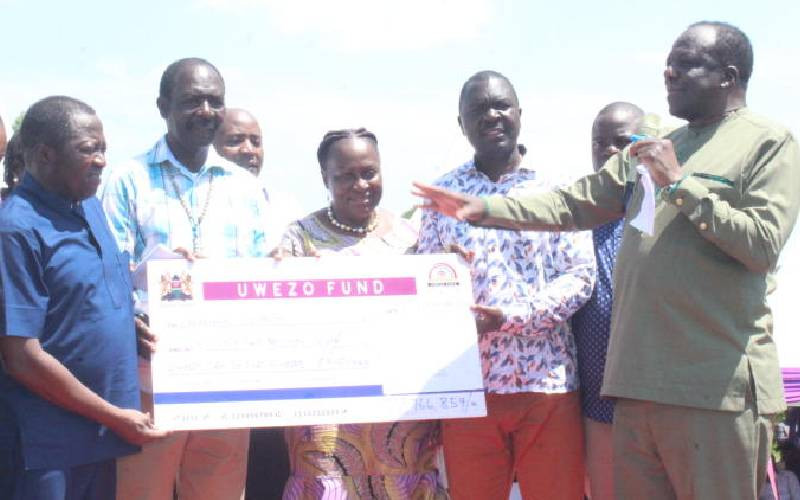×
The Standard e-Paper
Fearless, Trusted News

Cooperatives Cabinet Secretary Wycliffe Oparanya (right) issues a Sh72 million dummy cheque of Uwezo Fund to a section of MPs from Kakamega county at Malinya DCC office in Ikolomani constituency on September 7, 2024. [Benjamin Sakwa, Standard]
Cooperatives Cabinet Secretary Wycliffe Oparanya has warned Kenyans against investing in unlicensed or unregulated Saccos.